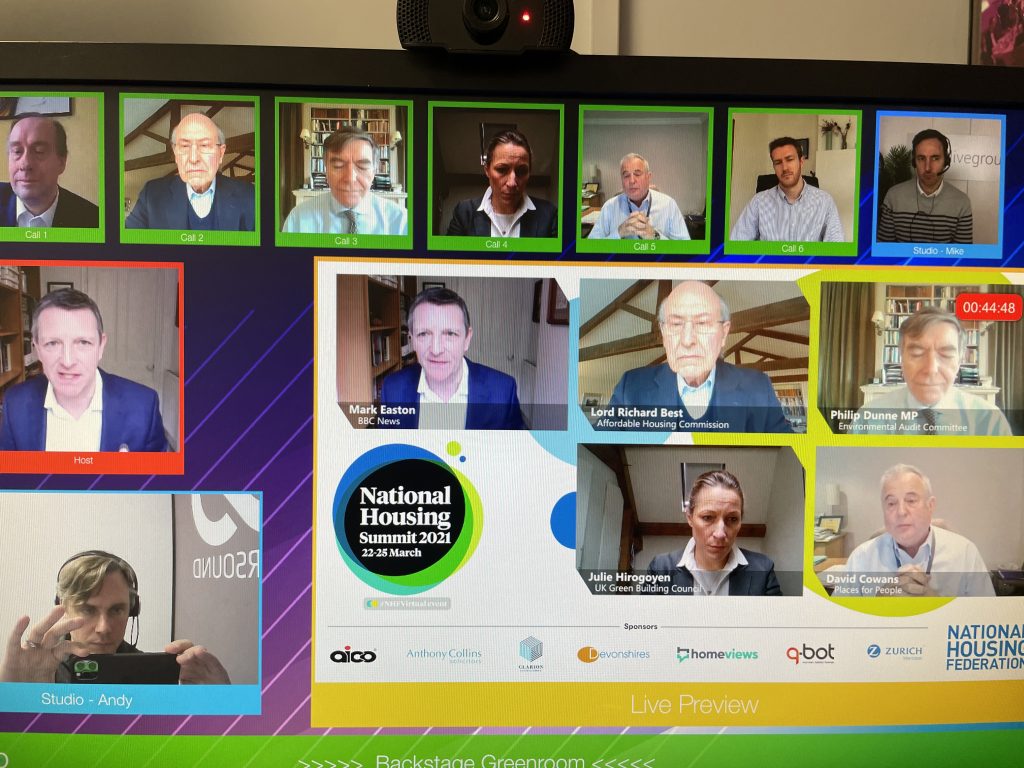
As technology evolves, so does the events industry. The nature of a virtual event – or online event as it’s often referred to – is an interactive event where not all the audience and participants are physically present. What happens during a virtual or hybrid event? Attendees can be in-room or may join from the comfort of their home or workplace using a computer or smartphone. You can also enhance face-to-face events with virtual elements, such as bringing in remote guests or speakers. Regardless, when planning a virtual event, conference or live show, there are a few guidelines to ensuring success on the day.
Planning virtual or hybrid events can appear daunting. Organisers may be unsure about choosing suppliers, building agendas and figuring out how sessions will flow online. As well as, what else is needed to ensure a smooth run. That’s why our expert event producers have put together this guide to share our top tips for planning a virtual event.
Types Of Virtual Events
By now, you have likely attended several types of virtual events already. From basic zoom calls to webinars, small virtual meetings, larger conferences, networking events, online trade shows, webcasts, and more. Each type of event has a specific purpose. For instance, informing colleagues, fundraising, show recognition to a workforce, create awareness, or hold an AGM. Whatever your reason for planning a virtual event, you’ll be on track to achieving your event goals and objectives by following the steps below.
Our Top 3 Tips
1. Define Your Event
As previously mentioned, every event starts with a specific goal. Establishing a solid purpose before planning commences is critical. Once identified, you can prioritise relevant key performance indicators that will allow you to measure your event’s success. Whether that is focusing on positive feedback, the number of views and shares for brand awareness, or customer/partner/employee retention.
You will also need to define all the participants. Start with your event audience. Be as specific as possible; this could be within age, experience level, or location. The better you understand your audience, the better chance you have at delivering an event that provides value to them.
Your planners and presenters are also vital. Define who needs to be involved behind the scenes to help with research, prepare and provide content and supporting materials. In addition, set out who your guest speakers and presenters will be. Don’t forget to communicate with your planners and presenters in the lead-up to your event. It’s essential to be clear about when and how they will join the event, their specific role and the options available to them during the ‘live’ time. This is particularly key for those who won’t be physically present and will join via a video link or remote record. In our experience, the better you do this prep, the more at ease people will be and the greater success you will have.
2. Provide the Right Event Experience
To deliver a successful, impressive, and memorable virtual event, you need a stable and secure platform with all the functionality you need for your type of event. But this doesn’t always mean you need bells and whistles. For instance, you don’t need a live streaming platform for a 4-person meet-up when zoom would work just fine. However, during an annual user conference, you don’t want the potential for hundreds of open microphones activating different faces on-screen other than those presenting; it can disrupt the flow and people will switch off quickly! Having come up with a fantastic concept, don’t be left without the ability to convey it adequately. Looking to industry-standard production teams, selecting appropriate venues, broadcast systems, and understanding your audience, among other elements, should be considered. Here at TMTV, we are experts in choosing suitable event technology, and we’re here to advise you.
From building virtual studios with online ‘green rooms’ to including audience engagement systems, and polling software, we implement and monitor our production efforts to ensure a seamless delivery throughout. We understand what it takes to host interactive events that accomplish excellence. We’re confident that our state-of-the-art platforms, equipment and knowledge of planning virtual and hybrid events are the key to meeting your business’s goals.
3. Choosing Suppliers
Like any event, whether 100% in-person, pre-recorded, or a live show with some virtual or online element, our checklist still includes finding the right businesses to support you. By finding suitable suppliers, you can add unique touches. For instance, sending remote attendees a gift bag or a product they can use when being taught by the event host.
In terms of virtual and hybrid event production, TMTV work our clients to ensure everyone involved feels confident about the virtual aspects of an event. From planning rehearsals, pre-recording certain elements for live playback, to arranging tech packs to be sent to remote locations if participants don’t have access to the right equipment, or require a higher specification – we have done it all.
Our goal is to bring your virtual event to new heights. Therefore, allowing further interaction with your guests, and encouraging a positive experience for everyone.
Virtual Events From TMTV
There are many questions to ask when planning a virtual event. Here at TMTV, we can offer you the answers. Virtual events were necessary during the pandemic; as a result, they have become a popular and flexible means of delivering information and boosting a business’s culture.
Through our precise approach to virtual and hybrid event production, we provide a flawless experience for all participants. We can support you to meet your event goals using the latest technology combined with our customisable platforms. Get in touch today for further information on our virtual event services on 01926 804 040 or just to chat about how we can help you.